Ewen Callaway in Nature:
 Here we go again. Nearly six months after researchers in South Africa identified the Omicron coronavirus variant, two offshoots of the game-changing lineage are once again driving a surge in COVID-19 cases there.
Here we go again. Nearly six months after researchers in South Africa identified the Omicron coronavirus variant, two offshoots of the game-changing lineage are once again driving a surge in COVID-19 cases there.
Several studies released in the past week show that the variants — known as BA.4 and BA.5 — are slightly more transmissible than earlier forms of Omicron1, and can dodge some of the immune protection conferred by previous infection and vaccination2,3.
“We’re definitely entering a resurgence in South Africa, and it seems to be driven entirely by BA.4 and BA.5,” says Penny Moore, a virologist at the University of the Witwatersrand in Johannesburg, South Africa, whose team is studying the variants. “We’re seeing crazy numbers of infections. Just within my lab, I have six people off sick.”
However, scientists say it is not yet clear whether BA.4 and BA.5 will cause much of a spike in hospitalizations in South Africa or elsewhere.
More here.

 In a recent article –
In a recent article – 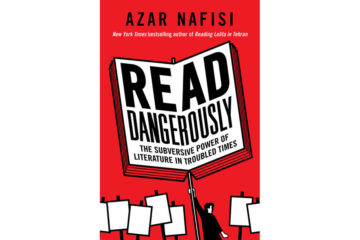 Azar Nafisi burst on the literary scene with “Reading Lolita in Tehran,” which recounted her efforts to teach Western literature to a small group of young women in Iran. A risky and challenging undertaking in that totalitarian state, but one that underscored, once again, the power of books to transform lives. In “Read Dangerously: The Subversive Power of Literature in Troubled Times,” she once again writes about the power of the written word to shape the way we see the world – this time by focusing on the present moment.
Azar Nafisi burst on the literary scene with “Reading Lolita in Tehran,” which recounted her efforts to teach Western literature to a small group of young women in Iran. A risky and challenging undertaking in that totalitarian state, but one that underscored, once again, the power of books to transform lives. In “Read Dangerously: The Subversive Power of Literature in Troubled Times,” she once again writes about the power of the written word to shape the way we see the world – this time by focusing on the present moment.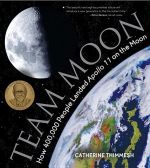 “Their voices were rapid-fire. Crisp. Assured. There was no hesitation. But you could practically hear the adrenaline rushing in their vocal tones, practically hear the thumping of their hearts as the alarms continued to pop up.
“Their voices were rapid-fire. Crisp. Assured. There was no hesitation. But you could practically hear the adrenaline rushing in their vocal tones, practically hear the thumping of their hearts as the alarms continued to pop up.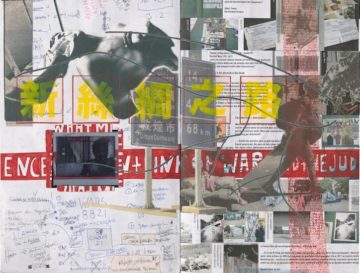 The use of sanctions doubled in the decade following 2000, while their rate of success plummeted. The Global Sanctions Database evaluates that from 1985 to 2000, they worked between 25 and 40 percent of the time; by 2016, that figure had fallen to below 20 percent. Why, then, do sanctions remain an instrument of first resort for the American foreign policy establishment? Their centrality is paradoxically a sign of American weakness. In an increasingly multipolar world, the United States has fewer ways of influencing global politics and less domestic appetite to do so. Sanctions are one of the last tools in an emptying diplomatic toolbox, as illustrated by recent events in Afghanistan and Russia.
The use of sanctions doubled in the decade following 2000, while their rate of success plummeted. The Global Sanctions Database evaluates that from 1985 to 2000, they worked between 25 and 40 percent of the time; by 2016, that figure had fallen to below 20 percent. Why, then, do sanctions remain an instrument of first resort for the American foreign policy establishment? Their centrality is paradoxically a sign of American weakness. In an increasingly multipolar world, the United States has fewer ways of influencing global politics and less domestic appetite to do so. Sanctions are one of the last tools in an emptying diplomatic toolbox, as illustrated by recent events in Afghanistan and Russia.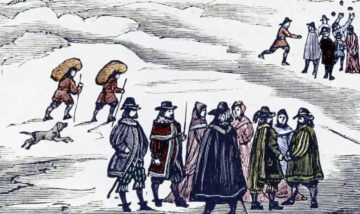 In early February 1814, an elephant walked across the surface of the Thames near Blackfriars Bridge in London.
In early February 1814, an elephant walked across the surface of the Thames near Blackfriars Bridge in London.  Sri Lanka is at a political deadlock. Protesters want the President and parliamentarians to go home. Parliament wants the President to go home. And the President wants the protesters to go home. But no one is going home. Meanwhile, we cannot change the President without changing the prime minister. We cannot change the prime minister because no party leader wants to be saddled with the economic crisis. And we cannot manage the economic crisis because there is no new prime minister. How do we get out of this triple deadlock?
Sri Lanka is at a political deadlock. Protesters want the President and parliamentarians to go home. Parliament wants the President to go home. And the President wants the protesters to go home. But no one is going home. Meanwhile, we cannot change the President without changing the prime minister. We cannot change the prime minister because no party leader wants to be saddled with the economic crisis. And we cannot manage the economic crisis because there is no new prime minister. How do we get out of this triple deadlock? A few years ago, the musician Ali Sethi was driving through Punjab, behind a jingle truck—the long-haul trucks known in his native Pakistan for their filigreed paint designs—when he spotted a phrase in florid Punjabi calligraphy on its back. “Agg lavaan teriya majbooriya nu,” it said—a call to “set fire to your compulsions.” It’s not uncommon to glimpse bits of verse, or dire warnings—against straying eyes or losing yourself in the big world out there—among the fluorescent parrots and tropical fruit schemes of jingle trucks. But Sethi couldn’t stop thinking about that phrase.
A few years ago, the musician Ali Sethi was driving through Punjab, behind a jingle truck—the long-haul trucks known in his native Pakistan for their filigreed paint designs—when he spotted a phrase in florid Punjabi calligraphy on its back. “Agg lavaan teriya majbooriya nu,” it said—a call to “set fire to your compulsions.” It’s not uncommon to glimpse bits of verse, or dire warnings—against straying eyes or losing yourself in the big world out there—among the fluorescent parrots and tropical fruit schemes of jingle trucks. But Sethi couldn’t stop thinking about that phrase.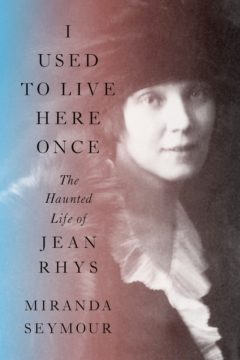 In 1974, at the age of eighty-four, Jean Rhys was asked in a television interview whether she would prefer to write or be happy were she to live her life over again. ‘Oh, happiness!’ she replied without missing a beat.
In 1974, at the age of eighty-four, Jean Rhys was asked in a television interview whether she would prefer to write or be happy were she to live her life over again. ‘Oh, happiness!’ she replied without missing a beat.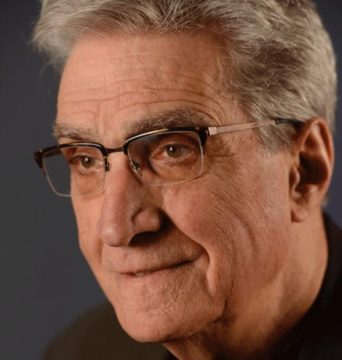 ROBERT
ROBERT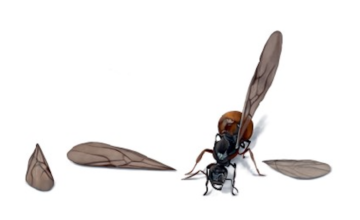 The fact that wings are not always a good thing is demonstrated by those animals whose ancestors used to have wings but who have given them up.
The fact that wings are not always a good thing is demonstrated by those animals whose ancestors used to have wings but who have given them up.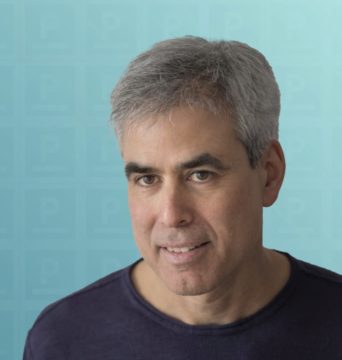 Jonathan Haidt: The piece is the culmination of my eight-year struggle to understand what the hell happened. I’ve been a professor since 1995. I love being a professor, I love universities. I just felt like this is the greatest job on Earth. I got a glimpse, as a philosophy major, of Plato’s Academy—sitting under the olive trees talking about ideas. And then all of a sudden, from out of nowhere in 2014, things got weird. They got aggressive and they got frightening. This game has been going on for thousands of years, in which one person serves something, the other person hits it back—around 2014, intimidation came in. There was a new element, which was that if you say something, people won’t argue why you’re wrong, they’ll slam you as a bad person. On the left, they’ll call you a racist; on the right, they’ll call you a traitor. But something changed on campus.
Jonathan Haidt: The piece is the culmination of my eight-year struggle to understand what the hell happened. I’ve been a professor since 1995. I love being a professor, I love universities. I just felt like this is the greatest job on Earth. I got a glimpse, as a philosophy major, of Plato’s Academy—sitting under the olive trees talking about ideas. And then all of a sudden, from out of nowhere in 2014, things got weird. They got aggressive and they got frightening. This game has been going on for thousands of years, in which one person serves something, the other person hits it back—around 2014, intimidation came in. There was a new element, which was that if you say something, people won’t argue why you’re wrong, they’ll slam you as a bad person. On the left, they’ll call you a racist; on the right, they’ll call you a traitor. But something changed on campus.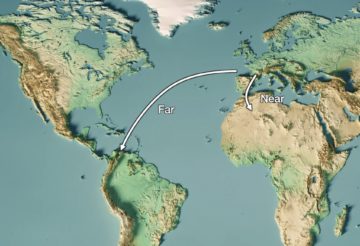 Europe is geographically much closer to Africa than America. Northern Africa has been part of the Eurasian culture since Alexander the Great conquered Egypt, over two millennia ago.
Europe is geographically much closer to Africa than America. Northern Africa has been part of the Eurasian culture since Alexander the Great conquered Egypt, over two millennia ago.